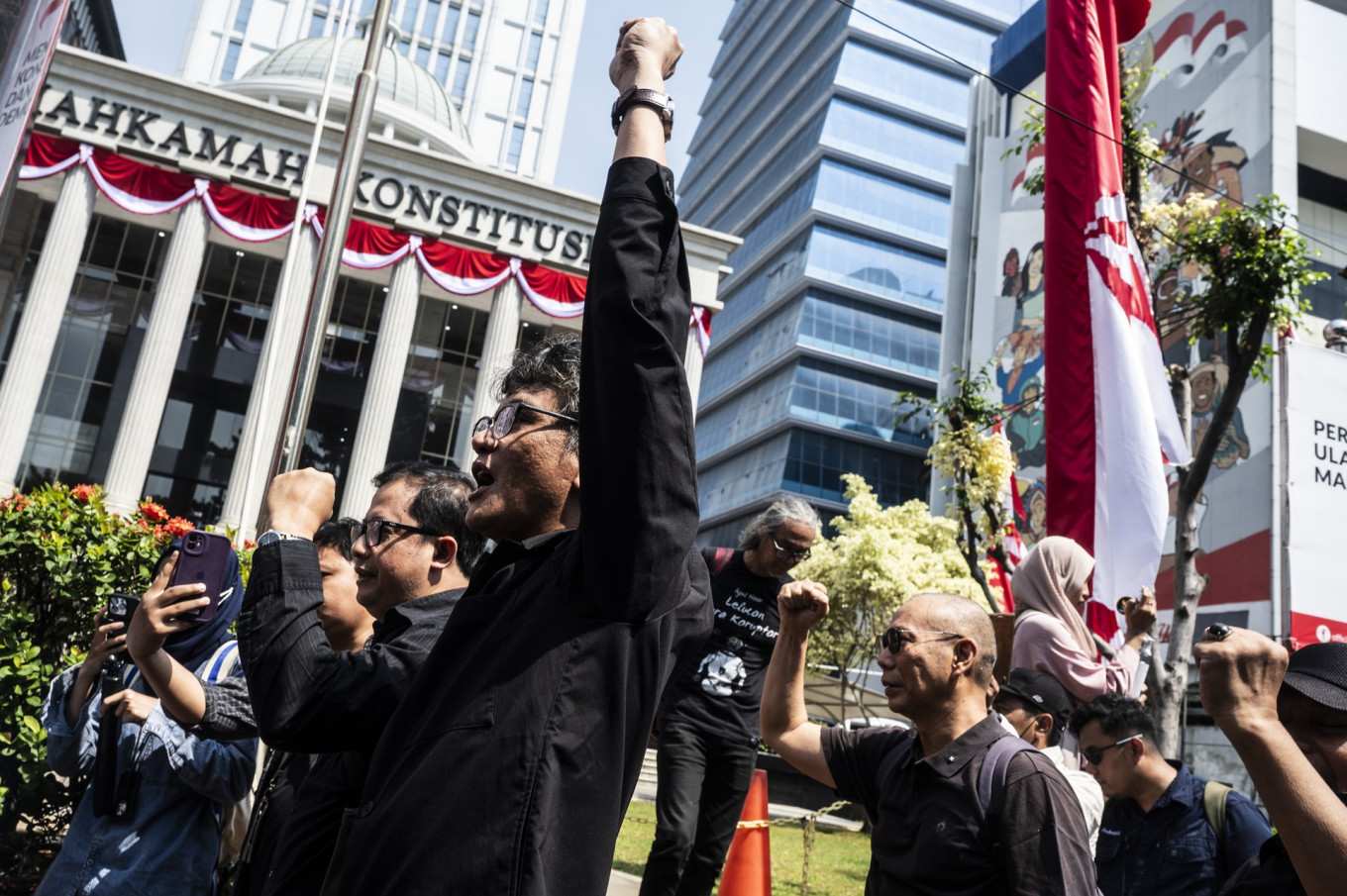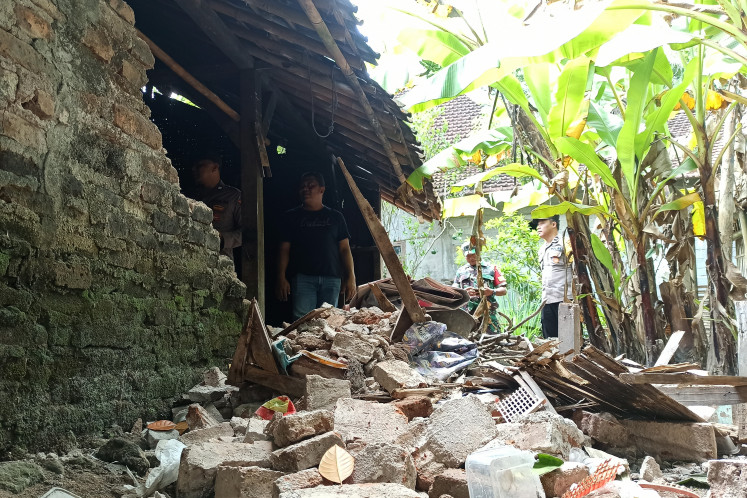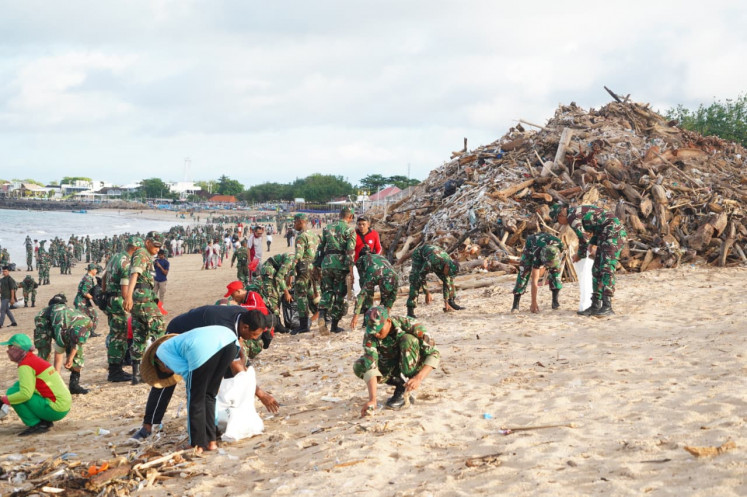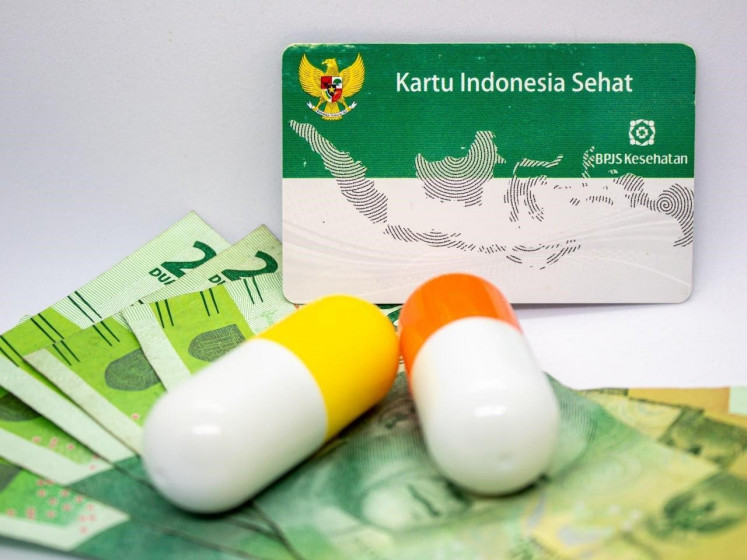Popular Reads
Top Results
Can't find what you're looking for?
View all search resultsPopular Reads
Top Results
Can't find what you're looking for?
View all search resultsConstitutional Court affirms KPK authority over military graft cases
The court stated it had arrived at the decision based on its consideration that Article 42 of the KPK Law conditionally contradicted the Constitution.
Change text size
Gift Premium Articles
to Anyone
 A group of activists, including academics, takes to the streets in front of the Constitutional Court in Jakarta on Aug. 22, 2024, during a demonstration to protest a Regional Elections Law revision from the House of Representatives in a move seen as an attempt to subvert the court’s ruling. The proposed revision was withdrawn later that day. (Antara/Aprillio Akbar)
A group of activists, including academics, takes to the streets in front of the Constitutional Court in Jakarta on Aug. 22, 2024, during a demonstration to protest a Regional Elections Law revision from the House of Representatives in a move seen as an attempt to subvert the court’s ruling. The proposed revision was withdrawn later that day. (Antara/Aprillio Akbar)
T
he Constitutional Court has affirmed that the Corruption Eradication Commission (KPK) has the authority to investigate corruption cases in the Indonesian Military (TNI) until the issuance of a final and legally binding verdict, as long as the KPK was the initial body to bring the case.
The court based its decision on a reinterpretation of Article 42 of Law No. 30/2002 on the KPK in a judicial review filed by lawyer Gugum Ridho Putra.
Article 42 stipulates that the KPK has the authority to coordinate and manage the investigation and prosecution of an alleged act of corruption conducted by individuals who are subject to a military tribunal and a civilian court.
Reading out the court’s decision on Friday, Chief Justice Suhartoyo said Article 42 was conditionally in conflict with the 1945 Constitution, and therefore an affirming phrase was added at the end: "As long as the law enforcement of the case in question is handled from the beginning or initiated/founded by the KPK."
In its legal consideration, the Constitutional Court stated that the legal issues arising with regard to corruption cases involving both civilian and military elements, also known as connected corruption, stemmed from differing interpretations of Article 42 of the KPK Law among law enforcers, Tempo.co reported.
However, the court said if Article 42 was understood grammatically, teleologically and systematically, there should be no doubt among law enforcement that the KPK had the authority to coordinate and oversee the investigation, prosecution and legal actions with respect to cases of connected corruption.
The Constitutional Court assessed that the legal issues regarding connected corruption cases required both compliance with legal norms as well as the adherence to proper law enforcement procedures.
Following the court's ruling, KPK deputy chairman Alexander Marwata said law enforcement authority over corruption cases involving military personnel, as outlined in the Constitutional Court's decision, aimed to affirm the principle of equality before the law.
"Like I always said, and I believe it has become the commitment of the head of state, the President [Prabowo Subianto], when he mentioned that everyone is equal before the law, regardless of their position, rank or anything else," Alexander said on Monday, as quoted by Tempo.co.
Separately, TNI chief spokesman Maj. Gen. Hariyanto said the military respected the court’s ruling, adding that it would study the implications of the ruling and coordinate with the KPK and the Attorney General's Office.
"However, if a corruption case cannot be prosecuted as a connected [corruption] case, the [suspected military personnel] will still be investigated by the Military Police and tried in a military court, while civilian [suspects] will be tried in a public court or corruption court," Hariyanto said, as quoted by Detik.com.










